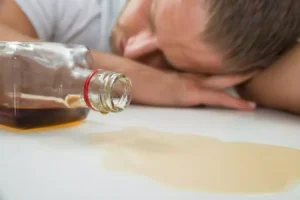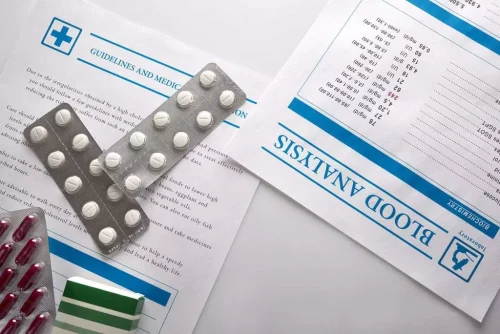Mindfulness training, a common component of cognitive behavioral therapy, can help people ride out their cravings without acting on them. A practice known as “urge-surfing” rests on the understanding that urges are impulses connected to old habits and they pass in 15 or 20 minutes, during which time it is possible to take a mental step back from them and mindfully observe them without giving in to them. What is needed is any type of care or program that facilitates not merely a drug-free life but the pursuit of new goals and new relationships.
Practice Healthy Living
Such triggers are especially potent in the first 90 days of recovery, when most relapse occurs, before the brain has had time to relearn to respond to other rewards and rewire itself to do so. Learning what one’s triggers are and acquiring an array of techniques for dealing with them should be essential components of any recovery program. Brains are plastic—they adapt to experience—and people can change and grow, develop an array of strategies for coping with life’s challenges and stressors, find new means of satisfaction and reward, and negotiate life ahead.
Disconnected Brains: How Isolation Fuels Opioid Addiction Rachel Wurzman (
Chronic substance use can lead to a range of long-term health problems, including liver damage, cardiovascular issues, respiratory problems, mental health disorders, cognitive impairment, and an increased risk of certain cancers. Understanding the potential health consequences can be a motivating factor in seeking treatment and maintaining recovery. When someone knows why they want to stay sober, such as rebuilding relationships, achieving personal goals, or improving their health, they are more motivated. Having purpose gives them strength in tough times and gives them the motivation they need to continue.
Ways to Stay Inspired on a Recovery Journey
Among the study subjects, the outpatients with high levels of both internal and external motivation had the highest treatment retention and treatment attendance outcomes. Irrespective of their level of external motivation, outpatients with low internal motivation had the worst treatment outcomes. Finally, patients with more severe alcohol problems generally had greater internal motivation for treatment. The severity of the patient’s alcohol problems enhances internal motivation, presumably because the problem severity increases distress and thus influences decisionmaking. Therapists, counselors, and specialized programs, like Del Arroyo Recovery Center, offer guidance tailored to your unique journey. These professionals provide tools, insights, and perspectives that can fortify your motivation.
Enhancing Motivation for Change in Substance Use Disorder Treatment: Updated 2019 [Internet].
More specifically, results show that more than 34% of the 1,079 respondents reported changes or disruptions in accessing treatment or recovery support services. Fourteen percent purported that they were unable to receive their needed services, and 2% say they were unable to access naloxone services. When the work gets tedious or overwhelming emotions creep in, returning to familiar, addictive behaviors can be incredibly tempting. If left to our own devices or isolated in this process, it is all too easy to fall into the trap of old habits.
Are You Ready to Get Motivated?
One technique is reflective listening, a form of paraphrasing that enables patients to more fully tell their stories and to feel that they are being heard by the empathetic MI therapist. A second technique involves exploring the pros and cons of change, which may help patients realistically evaluate their https://ecosoberhouse.com/article/5-tips-of-how-to-maintain-recovery-motivation/ behavior and current situation and, ideally, determine whether the pros of change outweigh the cons. A third MI technique, which supports the patient’s self-efficacy, or confidence that he or she can change, can help bridge the gap between a patient’s desire to change and concrete behavioral change.
They provide the necessary tools, support, and guidance to achieve lasting sobriety. Moreover, motivation is vital for getting through problems while in recovery. People will have triggers or difficulties that might tempt them to go back to old habits. With strong motivation, they can resist these temptations and stay focused on their sobriety goals. Motivation allows them to be resilient and determined, and to carry on without giving up sobriety. Inspiring quotes and engaging with the sober support community can motivate.
Think About the Health Risks of Drug Use
A consensus panel developed this TIP’s content based on a review of the literature and on panel members’ extensive experience in the field of addiction treatment. Other professionals also generously contributed their time and commitment to this project. 10-minute video clip from Jo Harvey Weatherford about her personal recovery journey. One of the best TED Talks for addiction, this 10-minute video clip from former Miss USA, Tara Conner, is all about her personal experience with substance use.
- In addition, there are nonprofit organizations such as American in Recovery and the National HIRE Network that specifically help those with addiction or criminal history to find work.
- Studies among substance-abusing patients have demonstrated the importance of motivation for treatment in predicting treatment participation and recovery (DeLeon et al. 1997; Simpson and Joe 1993).
- Key motivational counseling strategies for resolving ambivalence include reassuring the client that ambivalence about change is normal; evoking DARN (Desire, Ability, Reasons, and Need) change talk; and summarizing the client’s concerns.
- The client expresses desire, talks about their ability to change, will indicate their reasons for change, and describe the need for change.
- This type of motivation is more sustainable and enduring compared to extrinsic factors such as legal issues or social influence.
Evaluations of substance abuse treatment programs commonly include motivational dimensions (Simpson and Joe 1993). The next few years should see dramatic growth in researchers’ understanding of the role of motivation, both intrinsic and extrinsic, in alcoholism treatment and recovery. One of the best ways to sustain motivation for recovery motivation change in recovery is to focus on the benefits of sobriety. Recovery motivation can be challenging to maintain when the negative consequences of substance abuse seem distant or abstract. However, by focusing on the immediate and tangible benefits of sobriety, it can become more accessible to stay motivated in addiction recovery.
- This includes recognizing high-risk situations, such as being around substances or people, and making coping mechanisms to avoid or manage these triggers.
- However, the word is often used in different ways in different contexts.
- Motivational therapies have been an invaluable addition to the therapist’s toolbox in recent years.
- The eight-year study began in 1989 and aimed to match specific alcohol treatments to clients.




